July 2021
The 2020/2021 summer cropping season has been somewhat more rewarding than usual. The season has for most regions, been a good one. So many farmers are able to rejoice at the rewards for their labours unlike the drought years we have become more familiar with.
Some parts have however had a little too much rain. This is not something the farmers will grumble too much about – they just need to learn how better to manage the problems that arose, like contouring fields better and improving the organic matter in their soils so run off is not too damaging.
While so many of us have had to be careful about making unnecessary trips to see the fields around the country because of the COVID-19 pandemic, the Grain SA team whilst taking necessary precautions, are on the go. They have been busy visiting farmers, troubleshooting issues, monitoring the fields, training and holding study group meets and more recently doing new season planning with farmers who are starting to look at budgets and ordering for their next season crops.
During April:
This is a rewarding experience because it is at grass roots that we can see the impact we are making. We see individual growth; we enjoy the inspiration the farmers have after seeing the successful results of doing the right thing at the right time and in the right way.
It is also an opportunity for us to encourage other farmers and explain why there are successes in one field yet still poor results in a neighbouring land. For example, we highlight the importance of maintaining healthy soils through lime spreading and soil correction through good fertilisation. We also emphasise the importance of weed control – even at harvest or immediately post-harvest – as we consistently aim to reduce residual seed banks and also limit weed growth that may steal water and nutrients from the soils that could rather be saved and available to our next crops in the field.
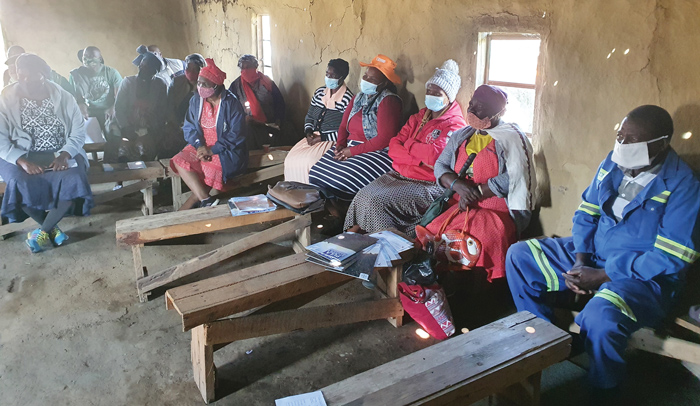
A group of farmers ready to expand their agricultural knowledge at the Pixley Ka Seme Study Group meeting at Daggakraal.
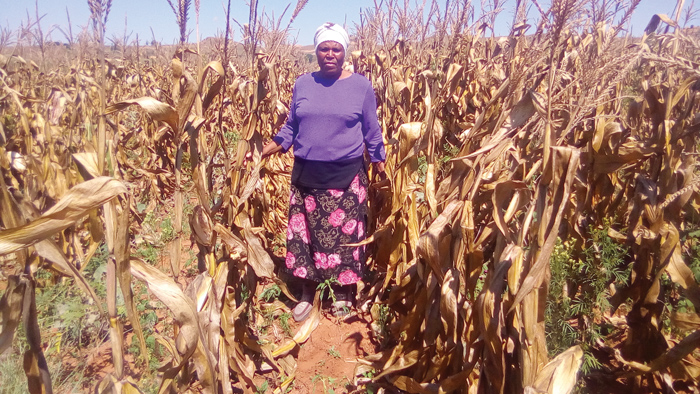
Farmer Queen Mahoa was encouraged during a farm visit to keep up the good work as her field was clean of weeds and there were no gaps between the crops.
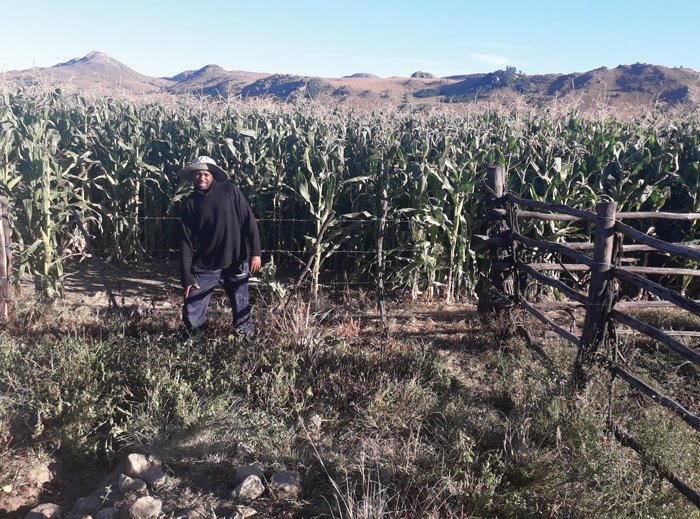
When the team visited farmer Mabel Molete’s farm, the crop looked good and weeds were well-controlled. Mabel’s son can be seen in the field.
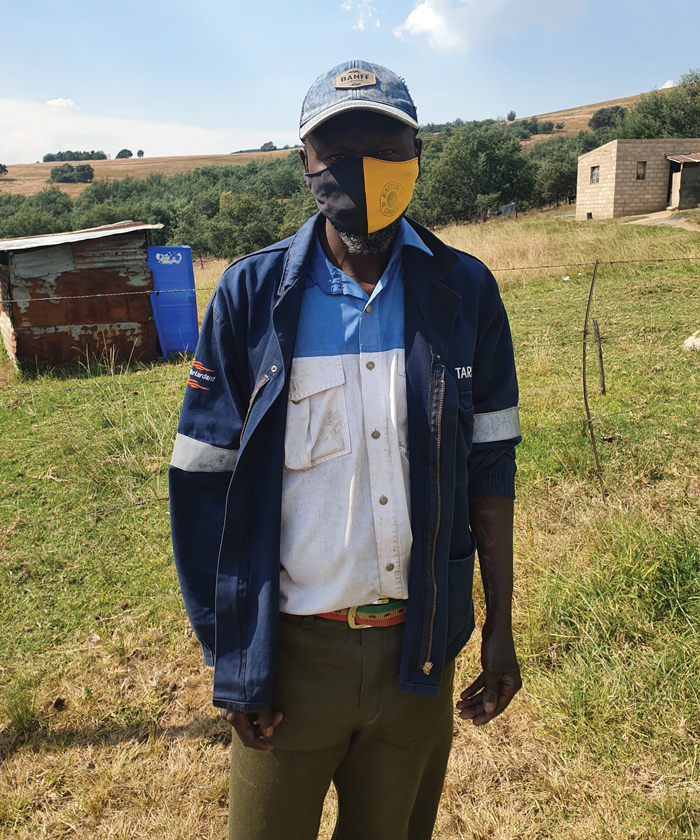
Farmer Sifiso Michael Mnisi had a meeting with Jurie Mentz, provincial coordinator to measure fields and plan the new season.
Training is an important aspect of the work we do. It has been challenging to roll out our training programme as planned, but we have done so by restricting the numbers and practising the correct protocols at the venues. To balance the theory and practical experience lessons, courses are held inside and outdoors. The average course runs over five days and is concluded with a test. Successful learners receive a certificate.
These eight courses took place during April all sponsored by the Maize Trust:
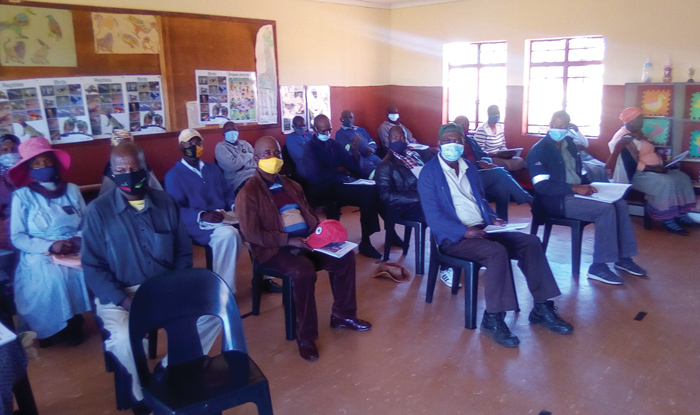
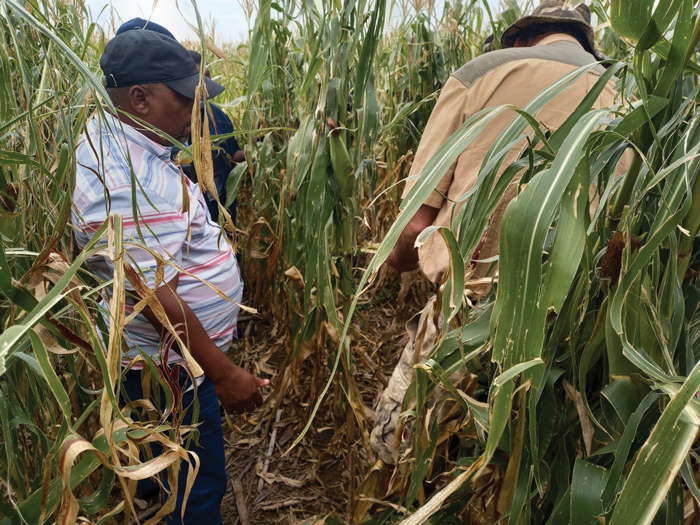
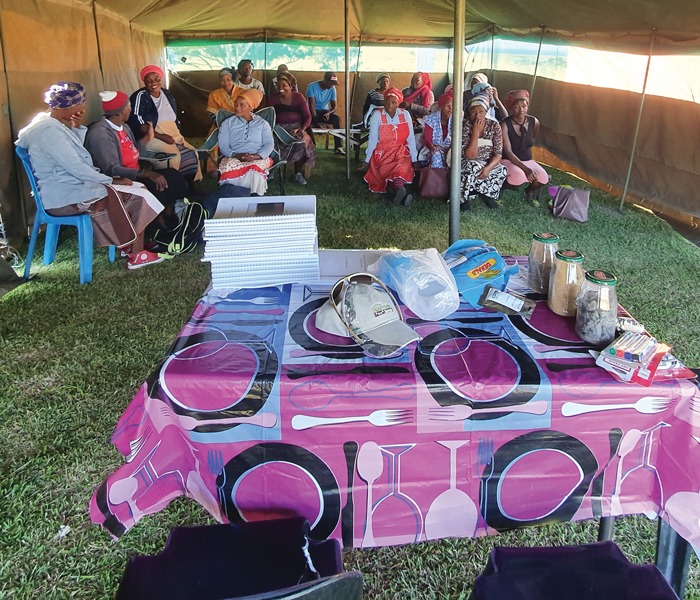
The Grain SA team took photographs during their 80 farm visits to show everyone involved in the Farmer Development Programme – from the manager to the farmers – what a team effort can produce. We share some of the pictures here.
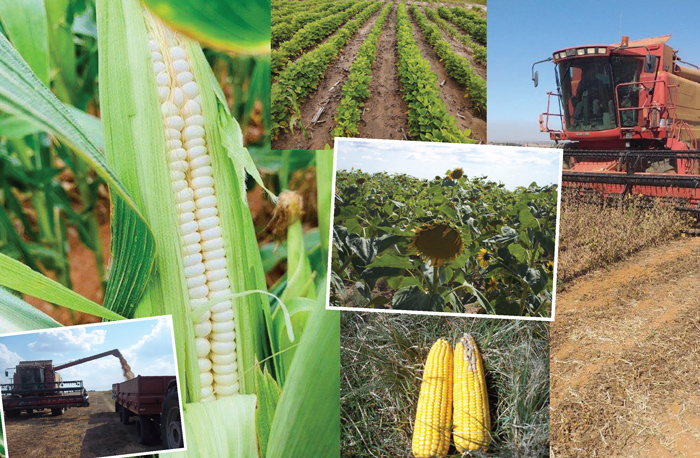
Publication: July 2021
Section: Pula/Imvula